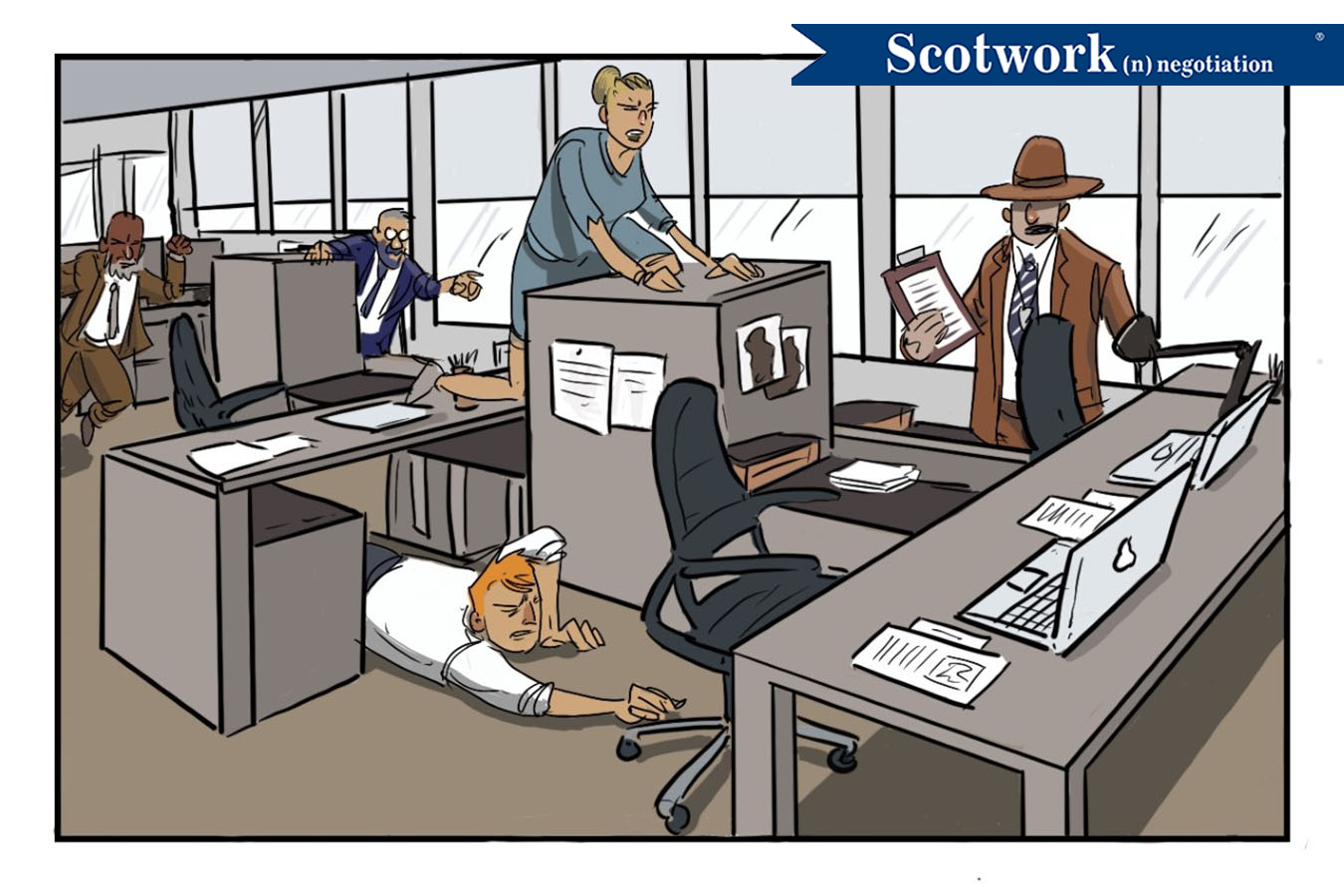One of my favorite sayings is, “Don’t let your obstacles become your excuses.” Obstacles arise in every negotiation, and they’re frequently the reason for why an outcome did or didn’t occur. How much of a role an obstacle plays in an outcome, however, relates to how well you deal with it.
The most common negotiation obstacles that I see can be broken down into three categories: personality obstacles, logical obstacles, and issue obstacles. A personality obstacle relates to the behavior of the individual you’re negotiating with. A logical obstacle is one in which you’re struggling to understand their reasoning, or they’re struggling to understand yours. An issue obstacle is one where you can’t seem to come together on an issue. In many cases, you might be dealing with more than one obstacle type, but let’s discuss some techniques for potentially overcoming each type in order to get to better deals.
Personality Obstacles
We’re not going to get along with everyone. I’ve met some people who seem to be able to do that, but even they run into folks they can’t make a connection with. Personality conflicts can derail a negotiation. If you find yourself in this situation, you might consider taking one of the following steps:
- Let the deal be your connector. The reality is, you two are there for a reason — presumably because you both want a deal. If there’s nothing else you’ve been able to build rapport around, then let the deal be the connector for your temporary partnership. When things get awkward, bring it back to the deal and remind each other of why you’re there.
- Bring a team with you. There’s strength in numbers. Having just one extra individual on your side can help you shift the focus away from your personality obstacle. Select someone who’s not like you — someone whose personality complements yours. For instance, I’m typically the outgoing, talkative type, which means I should bring in someone who’s a little more reserved in order to create balance.
- Let go of your ego. I like to think of myself as a people person, and it can bug me when I can’t make a connection with someone. Instead of letting that derail the deal, I’ll sometimes hand over the negotiation to someone else who can better connect. After all, is it more important to connect or get the deal?
Logical Obstacles
These can be frustrating. Running into a logical obstacle can make you feel like you’re talking with someone who thinks the sky is green and grass is blue. Logical obstacles can also be huge time-wasters, as you attempt to get the other side to see the world your way. The next time you hit this roadblock, you might want to try one of these techniques:
- Stop arguing, start investigating. There’s no sense in continuing to debate about who’s right and who’s wrong. Instead, start asking lots of questions to understand how they got to their viewpoint. This will help you find handles you can use to move the conversation forward.
- Make a bet on who’s right. If your logical issue has to do with two potential outcomes (e.g., they think X will happen while you think Y will happen), then place a bet on both. If your logic is right, then you’ll both do it your way; if your logic is wrong, then you’ll both do it their way.
- Agree to disagree. If a logical obstacle isn’t central to the negotiation, then agree to disagree and move on. If need be, you can revisit it later. However, if it’s central to the negotiation, then first try one of the two options above.
Issue Obstacle
Issue obstacles tend to be the most consequential to a negotiation, but getting past them is usually easier than getting past the others. If you do get stuck, consider trying one of these methods:
- Find out why. If someone rejects your position on an issue, find out why. People frequently defend a position before they even understand why someone objects to it. Ask questions first, then try to find resolution. You might be surprised by how easy it is to address the issue once you know what it is.
- How could you say yes? You don’t have to say yes to their demand, but before you reject it outright, think to yourself, “What would I need to say yes?” This will help unlock your creativity, allowing you to find ways to resolve the obstacle and move forward.
- Explore the space. Issue obstacles can arise when we don’t quite understand what it means to accept or reject a proposal. Before committing, ask the other side, “Suppose I could do that — what would that do for you?” This will force them to articulate the value of their ask, and it will help you understand the implications of your commitment (or lack thereof).
These are just a few of the ways to get past some of your obstacles at the negotiating table. The reality is, an obstacle is just a temporary roadblock that can be overcome with calmness, creativity, and perseverance. Don’t let your obstacles become your excuses!
We Can Help Your Team Overcome Obstacles at the Negotiating Table.
Are your dealmakers facing obstacles in their negotiations? Whether those roadblocks are the result of conflicts over personality, reasoning, or actual deal issues, don’t let them become excuses for not closing deals. We can help! Drawing on nearly 50 years of real-world negotiating experience, we’ll assist you with getting better deals, saving time, and creating value for all involved — not to mention preserving and even strengthening relationships. Let us partner you with one of our advisers, ensuring that you’ve got the broadest view of your deal.

